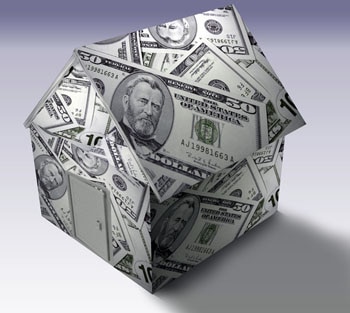How Is My Credit Score Calculated?
Your credit score, the algorithmic scoring model of your overall credit worthiness, comes into play frequently and consistently. Many times you may not even know it.
America operates in a broken model of impersonal lending. A model far too heavily weighted on even more impersonal – and often inaccurate – FICO credit score.
From buying a car to getting a mortgage loan, your credit score matters. It even matters on less complex transactions; like getting a cell phone plan, activating utilities or renting a car.
Poor credit will cost you. Higher interest rates, less favorable loan terms or large deposits to activate your utilities.
When a number carries that much importance it is wise that you understand how it is calculated and, thusly, how to protect it and put it to work for you.

Primary Credit Scoring Factors
If your credit score matters to you, which it should, knowing the factors behind the model are imperative to making financial decisions. Especially imperative during hard times when financial decisions become more difficult and grow in importance.
Payment History
Accounts for 35% of your score. This shows whether you make payments on time, how often you miss payments, how many days past the due date you pay your bills, and how recently payments have been missed.
Fixing payment history problems range from difficult to impossible. If you legitimately had a rough few months and missed a few payments then your only cure is time. If late payments are the result of creditor error then be ready to unequivocally prove it.
You don’t just need to prove the error to one credit bureau either; they do not communicate with each other. Fixing an error can often require submitting conclusive documentation to all 3 bureaus.
Credit Utilization Ratio
This is a fancy term for how much of your available credit is in use. It is the 2nd most important scoring factor and constitutes 30% of your score. Credit utilization ratio is based on the entire amount you owe versus the entire amount of credit available.
Individual credit cards can also have an impact if they are maxed-out or over the limit. Simply put, the credit scoring algorithms views those with maxed out cards and overall credit utilization ratios in excess of 50%, as a credit risk. The higher the ratio the higher the risk.
The higher the risk the lower your credit score will be.
Length of Credit History
Accounts for 15% of your score. The longer your history of making timely payments, the higher your score will be. Someone with 20 years of clean credit will be punished less for misgivings than those newer credit profiles.
Parents, if you’d like to ensure your children get a head start on a great credit score then you need to open credit in their name when legally possible to do so. Of course, use it correctly or you’ll set junior back significantly when the time rolls around for him to buy his first home.
Type of Credit
This makes up 10% of your score. Having a mix of accounts, including an auto & mortgage loans with carefully managed credit cards, will provide the bureau with what they want to see.
DO NOT attempt to build credit with a finance company or payday type loan. Even with on-time payments this type of financing can damage your score.
Credit Inquiries
This is by far the most misunderstood of all the scoring factors, and is responsible for about 10% of your score. Those actively seeking new credit – with multiple inquiries from various creditors – will feel the credit score ding.
That said, it is important to understand you have a 30 day “shopping” window to find the best auto or mortgage loan. Assuming of course you have not already used that window.
It’s complicated. Talk to your mortgage lender months in advance of your plans to buy and keep a close on-going watch on your credit score.
Amazon.com Best-selling author, Shashank Shekhar (NMLS 8176) is a mortgage lender with Arcus Lending, offering loans for home purchase and refinance. Shashank has been featured as a mortgage expert on Yahoo! News, ABC, CBS, NBC and FOX. He has been named "Top 40 under 40" most influential mortgage professionals in the country.

















